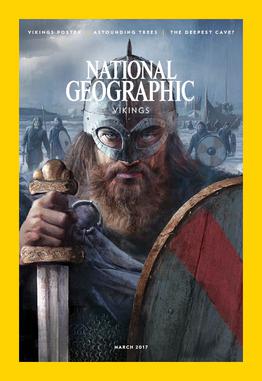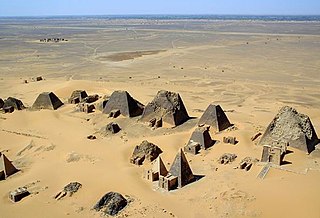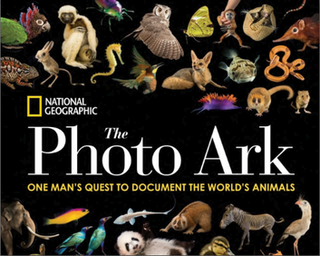Related Research Articles

National Geographic is an American monthly magazine published by National Geographic Partners. The magazine was founded in 1888 as a scholarly journal, nine months after the establishment of the society, but is now a popular magazine. In 1905, it began including pictures, a style for which it became well-known. Its first color photos appeared in the 1910s. During the Cold War, the magazine committed itself to present a balanced view of the physical and human geography of countries beyond the Iron Curtain. Later, the magazine became outspoken on environmental issues.

The Nubian pyramids were built by the rulers of the ancient Kushite kingdoms. The area of the Nile valley known as Nubia, which lies in northern present-day Sudan, was the site of three Kushite kingdoms during antiquity. The capital of the first was at Kerma. The second was centered on Napata. The third kingdom was centered on Meroë. The pyramids are built of granite and sandstone.

Edmund Wade Davis is a Canadian cultural anthropologist, ethnobotanist, author, and photographer.

Lola Álvarez Bravo was the first Mexican female photographer and a key figure in the post-revolution Mexican renaissance. Known for her high level of skill in composition, her works were seen by her peers as fine art. She was recognized in 1964 with the Premio José Clemente Orozco, by the State of Jalisco, for her contributions to photography and her efforts to preserve the culture of Mexico. Her works are included in the permanent collections of international museums, including the Museum of Modern Art in New York City.
Luis Marden was an American photographer, explorer, writer, filmmaker, diver, navigator, and linguist who worked for National Geographic Magazine. He worked as a photographer and reporter before serving as chief of the National Geographic foreign editorial staff. He was a pioneer in the use of color photography, both on land and underwater, and also made many discoveries in the world of science.

Robert Gallagher is a commercial and editorial photographer currently based in Los Angeles, California. He has been awarded four times in the Communication Arts Photography Annual, named one of the 'Top 25 Photographers of 2016' by Creative Quarterly and is archived in The National Portrait Gallery in London.

Brian Skerry is an American photojournalist and film producer specializing in marine life and ocean environments. Since 1998 he has been a contributing photographer for National Geographic magazine with more than 30 stories to his credit, including 6 covers. In 2021 Skerry won a Primetime Emmy Award for his role as producer in the miniseries, Secrets of the Whales.

Joel Sartore is an American photographer focusing on conservation, speaker, author, teacher, and long-time contributor to National Geographic magazine. He is the head of The Photo Ark, a 25-year project to document the approximately 12,000 species living in the world's zoos and wildlife sanctuaries.

Paul Nicklen is a Canadian photographer, film-maker, author and marine biologist.

Jonathan Bird is an American photographer, cinematographer, director and television host. He is best known for his role as the host of Jonathan Bird's Blue World, a family-friendly underwater exploration program on public television in the United States. His work is largely underwater in nature.

Annie Griffiths is an American photographer known for her work at National Geographic and a founder of Ripple Effect Images.
Amy Toensing is an American photojournalist.

Jill Heinerth is a Canadian cave diver, underwater explorer, writer, photographer and film-maker. She has made TV series for PBS, National Geographic Channel and the BBC, consulted on movies for directors including James Cameron, written several books and produced documentaries including We Are Water and Ben's Vortex, about the disappearance of Ben McDaniel.
Dina Litovsky is a Ukrainian-born photographer, living in New York City since 1991.

Austin Irving is an American contemporary artist and photographer.

The Photo Ark is a National Geographic project, led by photographer Joel Sartore, with the goal of photographing all species living in zoos and wildlife sanctuaries around the globe in order to inspire action to save wildlife.

Trần Tuấn Việt is a Vietnamese photographer, known as "the man who brings Vietnam's images to the world". He is a contributing photographer for National Geographic and Google Arts & Culture, an online art and culture platform run by Google.
Klaus Thymann is a Danish explorer, scientist, fellow at The Explorers Club, fellow at the Royal Geographical Society, photographer, filmmaker and creator. He has developed an original viewpoint utilising a cross-disciplinary skillset that combines journalism, image making, mapping, documentary and exploration with a focus on contemporary issues and the climate emergency. Thymann has been featured by BBC, National Geographic, The Guardian, New Scientist and many other distinguished media outlets. He was awarded with the Sony World Photography Award in 2013 and was the youngest winner of the Scandinavian Kodak Gold Award in 1996. He is on the Expert Roster at UNESCO – UN Decade of Ocean Science for Sustainable Development.
B. Anthony Stewart was an American photographer with National Geographic. Stewart is known for having the first image featured on the cover of the magazine, that of the 49-star flag of the United States after Alaska's admission to the Union as a U.S. state. He is credited with more than one-hundred photos in the publication, five of which were featured on the cover.
The Ancient Art Archive (AAA) is a nonprofit organization dedicated to the preservation, visual documentation, and sharing of prehistoric works of art, particularly cave painting and petroglyphs, around the globe. The organization was founded in 2016 by photographer Stephen Alvarez following an assignment to photograph France's Chauvet Cave for National Geographic. As part of its mission to create and distribute 3D images of ancient artwork for educational purposes—many of which are threatened by climate change, mining operations, and vandalism—the Archive has launched the Mural of America, a collaboration of anthropologists, archaeologists, and Native American artists to document and provide cultural and scientific context to ten North American cultural landmarks. In 2022, members of the Archive team received wide media attention for their use of 3D photography in uncovering previously unseen cave art in Alabama's 19th Unnamed Cave.
References
- ↑ "Photographer Stephen Alvarez's Ancient Art Archive". ARTS ATL. 2017-06-23. Retrieved 2020-12-11.
- ↑ "Photographer Stephen Alvarez Biography - National Geographic". Photography.nationalgeographic.com. Archived from the original on 2013-12-07. Retrieved 2013-12-03.
- 1 2 3 "Second Place | General News Reporting". Poyi.org. Retrieved 2013-12-03.
- 1 2 "Communication Arts - Home". Commarts.com. Archived from the original on 2008-01-22. Retrieved 2013-12-03.
- 1 2 3 Archived February 19, 2008, at the Wayback Machine
- 1 2 "Messages from Across the Millennia". The University of the South. Retrieved 2020-12-21.
- ↑ Time Magazine, November 30, 1992, "Subterranean Secrets"
- ↑ "National Geographic Photo Gallery: Inca Culture-Ice Maiden". Nationalgeographic.com. Archived from the original on 2013-12-05. Retrieved 2013-12-03.
- ↑ Archived November 6, 2007, at the Wayback Machine
- ↑ Archived November 8, 2007, at the Wayback Machine
- ↑ "Cave Exploration Pictures, Cave Photos, Gallery, Wallpaper –- National Geographic". National Geographic Society . 12 April 2009. Archived from the original on September 21, 2016.
- ↑ The Nature Conservancy Magazine, Autumn 2005, "The Last Frontier"
- ↑ "Banff Events, Performances and Exhibitions Calendar for the Banff Cen…". Archived from the original on 25 May 2012.
- ↑ "Deepest Cave, Call of the Abyss - National Geographic Magazine". .nationalgeographic.com. Archived from the original on February 6, 2007. Retrieved 2013-12-03.
- ↑ "Rome's Ruins - National Geographic Magazine". .nationalgeographic.com. Archived from the original on July 1, 2006. Retrieved 2013-12-03.
- ↑ "Caving in Papua New Guinea - Learn More - National Geographic Magazine". .nationalgeographic.com. Archived from the original on August 24, 2006. Retrieved 2013-12-03.
- ↑ El-sawy, Tewfic (2010-01-07). "::: The Travel Photographer :::: Stephen Alvarez: Maya Underworld" . Retrieved 2020-12-21.
- ↑ "Crimes of War". Crimes of War. Archived from the original on 2013-12-07. Retrieved 2013-12-03.
- ↑ "Rising Up From Prostitution In Nashville". NPR.org. Retrieved 2020-12-21.
- ↑ Gibbons, Ann (2016-10-07). "First Polynesians launched from East Asia to settle Pacific". Science. 354 (6308): 24–25. doi:10.1126/science.354.6308.24. ISSN 0036-8075. PMID 27846479.
- ↑ "Stone Forest — Photo Gallery — National Geographic Magazine". Ngm.nationalgeographic.com. 2013-04-25. Archived from the original on October 21, 2009. Retrieved 2013-12-03.
- ↑ "Paris Catacombs - National Geographic Magazine". Ngm.nationalgeographic.com. 2013-04-25. Archived from the original on January 20, 2011. Retrieved 2013-12-03.
- ↑ "Life Below The City Of Light: Paris Underground". NPR. 2011-01-29. Retrieved 2013-12-03.
- ↑ "Stephen Alvarez takes smartphone photography to the next level using Lumia devices". news.microsoft.com. Retrieved 2020-12-21.
- ↑ "Nat Geo Captures the World For Nokia, With a Phone | SXSW 2015 Event Schedule". SXSW Schedule 2015. Retrieved 2020-12-21.
- ↑ "Origins of Art". Magazine. 2015-01-01. Archived from the original on August 5, 2019. Retrieved 2020-12-21.
- ↑ "Photographer Stephen Alvarez's Ancient Art Archive". ARTS ATL. 2017-06-23. Retrieved 2020-12-21.
- ↑ "Van Ling". IMDb. Retrieved 2020-12-21.
- ↑ "Procession Panel, Bears Ears National Monument, Utah - The Photo Society". thephotosociety.org. Retrieved 2020-12-21.
- ↑ "Chickasaw Cultural Center - Native American Culture & History". chickasawculturalcenter.com. Retrieved 2020-12-21.
- ↑ "Banff Centre Media Release". Banffcentre.ca. 2006-04-13. Archived from the original on 2013-12-07. Retrieved 2013-12-03.
- ↑ "Communication Arts August 2004 Photography Annual 45". Commerce.commarts.com. 2000-01-01. Archived from the original on 2013-02-04. Retrieved 2013-12-03.
- ↑ "PDN 2006 Photo Annual: About". Musarium.com. Archived from the original on 2012-02-20. Retrieved 2013-12-03.
- ↑ "The Uganda Sudan Border Project". Ugandasudanborder.org. Archived from the original on 2014-01-02. Retrieved 2013-12-03.
- ↑ "The Aftermath Project | the Auction". Archived from the original on May 14, 2009. Retrieved May 23, 2009.
- ↑ "Communication Arts August 2007 Photography Annual 48". Commerce.commarts.com. 2000-01-01. Archived from the original on 2013-02-04. Retrieved 2013-12-03.
- ↑ "2012 Eyes of History: New Media Contest". White House News Photographers Association. Retrieved 2020-12-21.
- ↑ "London & Partners Wins Top Prize at Inaugural World Media Awards 2016 | LBBOnline". www.lbbonline.com. Retrieved 2020-12-21.